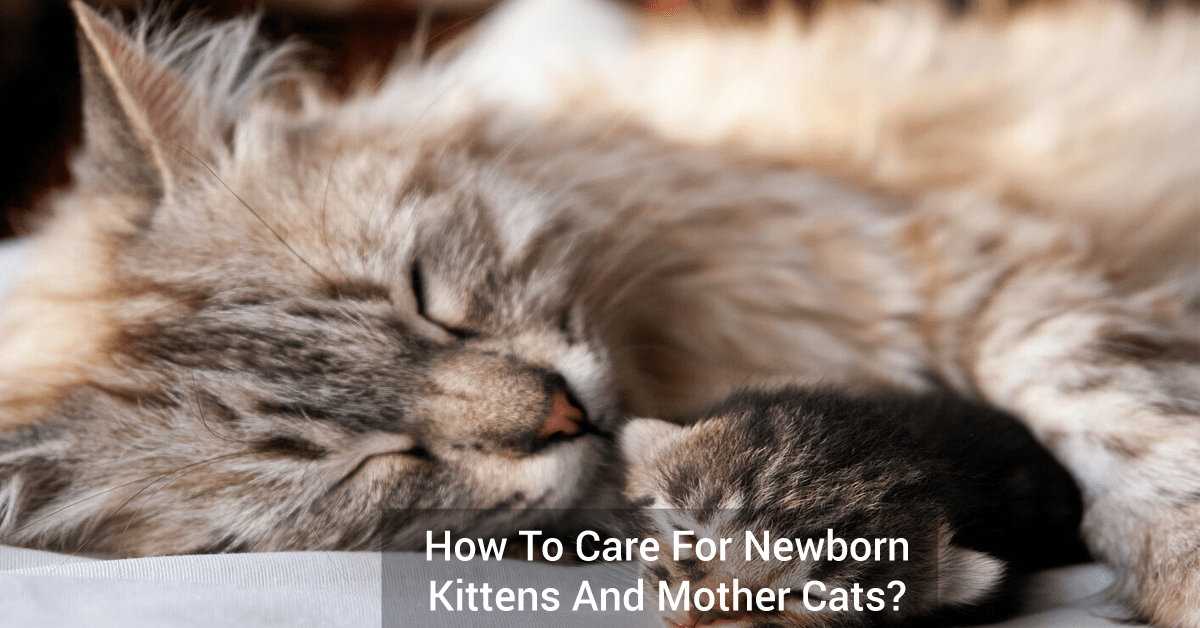Kittens need their mom for warmth and nutrition for the first few weeks, so make sure that the mother cat has enough food and water. Kittens also need to be fed every two to three hours during the first few weeks.
Have you noticed those tiny balls of fur appearing in your home recently? Kittens! As exciting as a new litter of kittens can be, caring for newborns can be a little overwhelming.
Some of the most exciting moments in a cat owner’s life are those spent caring for newborn kittens? The arrival of a new litter of kittens is an exciting experience for both the mother cat and her owner. While the mother cat is very experienced in raising her kittens, owners can play a vital role in helping new babies get off to a healthy start in life.
Most people have a hard time keeping up with newborn kittens. They are super active, and they are constantly exploring. Mother cats are no different. They are frequently on the move with their kittens, staying on the lookout for danger and finding the next meal.
Here are some ways in which you can take care of the kittens and the mother cat:
Suppose you cannot look after a mother cat. In that case, you can always contact your local animal shelter or an animal rescue organization. They will provide you with information about looking after the mother cat and its kittens. One thing that can go wrong with a mother cat is when someone feeds it too much cat food. If you provide your cat with too much cat food, the cat will eat all day long and have no energy to protect its kittens.
If you are fortunate enough to have a mother cat in your household, the best thing you can do is make sure that you provide your cat with a good night’s sleep and a good diet to keep it healthy. Unfortunately, kittens are also born very dirty, and they need to be cleaned by their mother to get rid of the filthy smell. The mother cat will keep the kittens hidden in their box until they are cleaned and fed.
Cats may find it hard to get used to new humans, but you must try hard to take care of your cat and be as gentle as possible for a mother cat. To be prepared, you must get some supplies for your cats, such as a bowl, toy, bed, litter box, and food.
Points to be noted:
- After the cat gives birth, she will provide the warmth and nutrition needed by the kittens. Therefore, you should constantly supervise them while maintaining a respectable distance.
- Remember that the kittens can get pregnant from four months of age, so you need to keep them indoors until neutered.
- Newborn kittens can lose heat quickly, so warmth is essential. However, the mother will keep her kittens warm by using her body heat, but sometimes she may be tired or ignore them, in which case you will have to take the lead.
- You should provide the kittens with warmth by keeping a warm pad, whose temperature should be no more than the body temperature. The kittens should also be covered with a light blanket.
- The bedding of the kittens and their mother should always be dry and clean.
- The kittens should suckle the milk from the mother immediately after birth; however, if they don’t do it, you should gently guide them towards it.
- After consulting the vet, if the kittens don’t feed themselves, you must provide them with the substitute milk.
- Kittens will have their mother’s milk for the first three weeks. After that, they will suckle for about 45 minutes at a time, so you will need to give your kitten about five to six feedings per day, be consistent.
- You can give them water, but you don’t want them to drink too much because it can cause diarrhea.
- Kittens can quickly become stressed and upset if separated from their mother, even briefly. Therefore, in the first few weeks of life, kittens should not be separated from their mother at all.
- Kittens must stay close to an adult cat for comfort and protection. The mother cat needs to be kept in a separate room from the litter-box and litter area.
When should you call the vet?
Newborn kittens’ health and well-being are of paramount importance. Whether it’s a singleton kitten or a litter of newborn kittens, the arrival of your new additions means significant changes in your life. However, the first few weeks of life bring a lot of changes for your kittens, including new behaviors and needs. This can be challenging to know when to call the veterinarian. Follow these tips to determine when to call the veterinarian for your kitten.
- Take her to the vet if the cat is vomiting or is drinking water excessively.
- Contact the vet if the mother cat collapses, is drowsy, or has a clumsy movement.
- If, by any chance, you need to take the cat to the vet, make sure that the kids have enough warmth when their mother is away, and also, they have substitute milk. Remember, the kittens can survive only an hour or so without milk.



